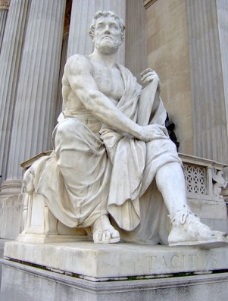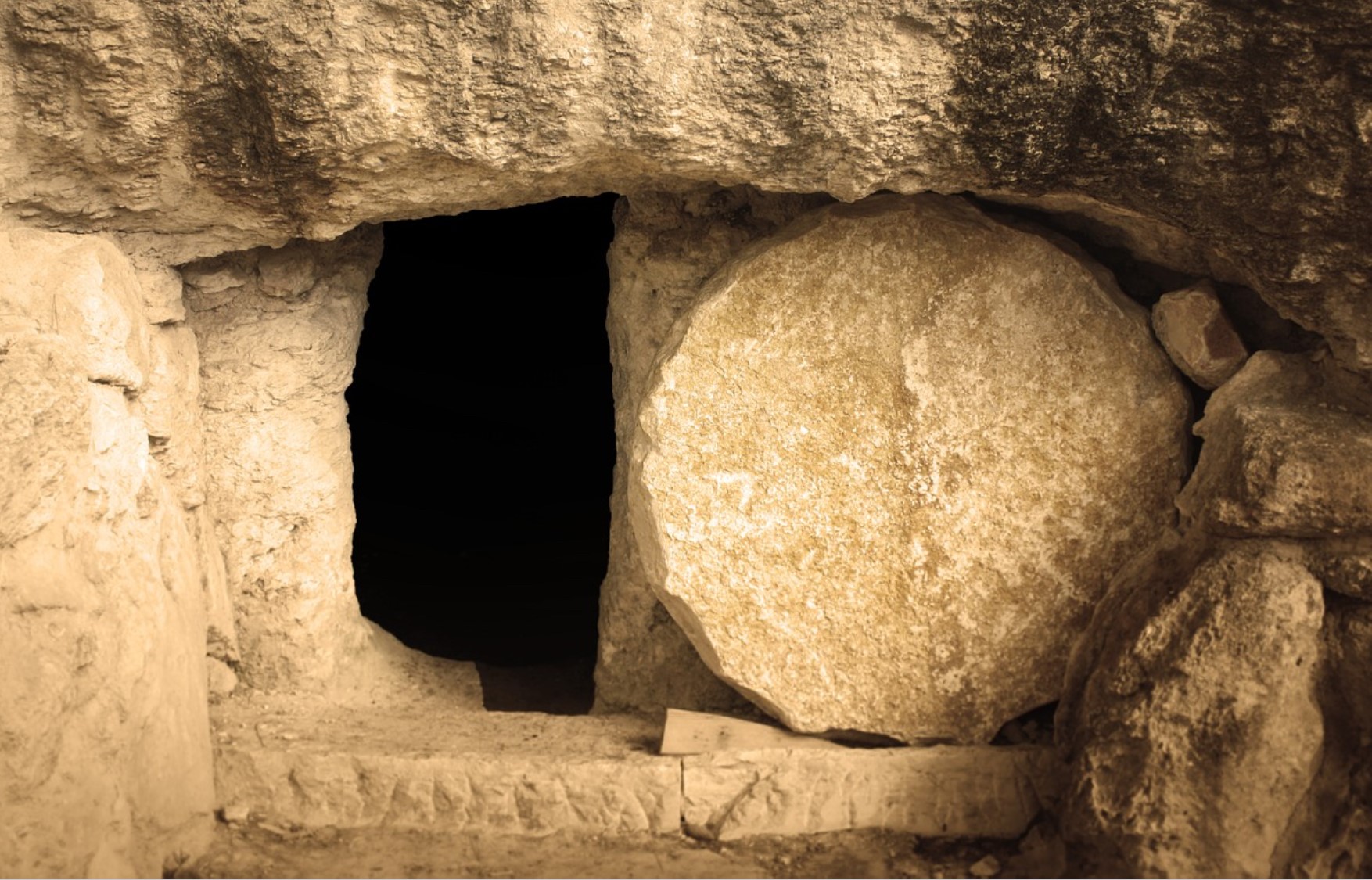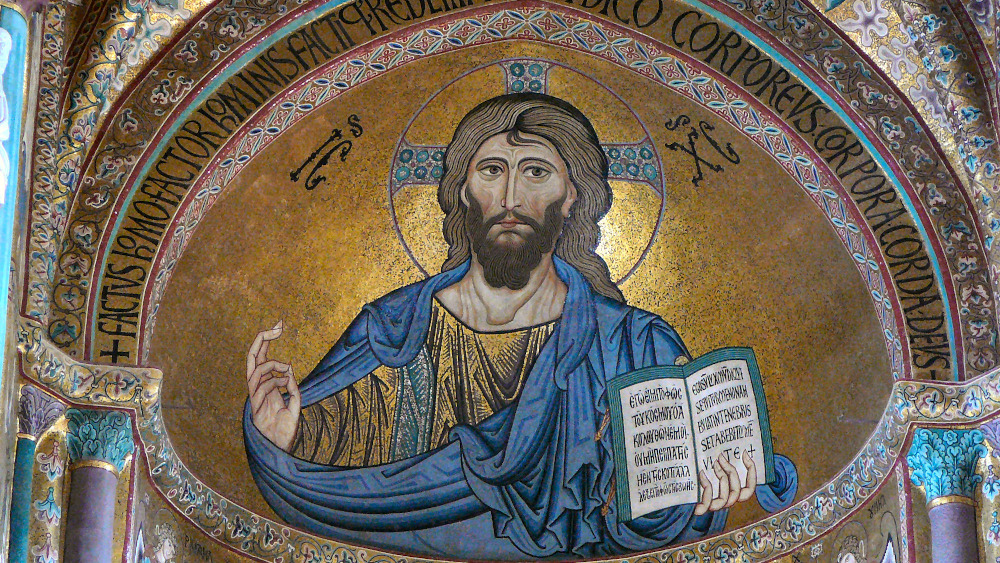Evidence for Jesus Christ
Secular evidence for the Existence of Jesus
D. Palmer
 Christianity is based upon the historically documented life of Jesus. His story has been told for more than 2,000 years and was prophesied for hundreds more. Churches honoring Jesus have been built in every corner of the world in remembrance of His crucifixion and love for humanity. If you travelled the world and asked the question, “Who is Jesus?” Most people would reply by saying that Jesus was a man, a prophet and some may even say, He was the Son of God. Modern and early historians are unanimous in their account that a man known as Jesus lived in the first century. He is referred to as a teacher, a man of wonderful works, a person with abundant radical followers. His crucifixion and his resurrection are documented by these very historians. These individuals were mostly pagan and hostile towards Christianity. They discuss mystical occurrences credited to Jesus and often attribute the miracles and wonders to sorcery.
Christianity is based upon the historically documented life of Jesus. His story has been told for more than 2,000 years and was prophesied for hundreds more. Churches honoring Jesus have been built in every corner of the world in remembrance of His crucifixion and love for humanity. If you travelled the world and asked the question, “Who is Jesus?” Most people would reply by saying that Jesus was a man, a prophet and some may even say, He was the Son of God. Modern and early historians are unanimous in their account that a man known as Jesus lived in the first century. He is referred to as a teacher, a man of wonderful works, a person with abundant radical followers. His crucifixion and his resurrection are documented by these very historians. These individuals were mostly pagan and hostile towards Christianity. They discuss mystical occurrences credited to Jesus and often attribute the miracles and wonders to sorcery.
There is an abundance of non-biblical, historical evidence that supports the existence of Jesus. Following are ten examples of non-Christian sources documenting the existence of Jesus and His group of believers known as Christians. Modern scholars, secular and non, universally acknowledge the authenticity of these references, thus proving without doubt, the historical evidence of the existence of Jesus.
1. Emperor Nero AD 15-68. Nero blamed the Christians (the name given to the followers for their belief in Jesus Christ) for the fire that destroyed Rome in 64 AD.
 2. Tacitus (a Roman senator) 55-120 AD. Scholars consider Tacitus’s references of the execution of Jesus by Pontius Pilate to be both authentic and of historical value as an independent Roman source. His writings refer to the Christians’ superstitions, their punishments and subsequent torture.
2. Tacitus (a Roman senator) 55-120 AD. Scholars consider Tacitus’s references of the execution of Jesus by Pontius Pilate to be both authentic and of historical value as an independent Roman source. His writings refer to the Christians’ superstitions, their punishments and subsequent torture.
3. Suetonius (a Roman court official) 49 AD. He recorded that there were Christians in Rome less than 20 years after Jesus’s execution. He reported that they were suffering and dying for their faith and conviction that Jesus lived, died, and rose from the dead.
4. Pliny the Younger (the Roman governor) 112 AD. He wrote to Emperor Trajan, seeking advice as to how to treat the Christians. He recounts that he had killed Christian men, women and children. He explained his concern that Christians chose death over bowing to a statue of the emperor or cursing Jesus.
5. Thallus (a secular historian) AD 52. He was quoted by other historians of the time as saying the darkness enveloped the land during the late afternoon hours when Jesus died by crucifixion.
6. Phlegon (a secular historian) AD 80. He comments in his chronicles on the darkness at the time of Christ’s crucifixion.
7. Mara Bar-Serapion (a Syrian philosopher) 70 AD. He compared Jesus to the philosophers Socrates and Pythagoras.
8. Lucian of Samosate (a Greek satirist) AD 120-180. He spoke scornfully of Jesus and the Christians. He said, “the Christians worship a man to this day...the person who introduced their novel rites, and was crucified on that account.”
9. The Babylonian Talmud – (A vast collection of Jewish laws and traditions (non-Christian) Written between the 2nd-5th century. Traditions taught that Jesus was accused of practicing sorcery and that he was hanged on the eve of the Passover (hanged was another term for crucifixion).
10. Josephus (a Jewish priest & historian) AD 37-100. He refers to Jesus’s works, followers, and His crucifixion. Josephus wrote: “Now there was a man about this time, Jesus, a wise man, if it be lawful to call Him a man, for He was a doer of wonderful works, a teacher of men as to receive the truth with pleasure. He drew over to Him both many of the Jews and Gentiles. He was the Christ, and when Pilate at the suggestion of the principal men among us had condemned him to the cross, those that loved him at the first did not forsake him; for he appeared to them alive again the third day; as the divine prophets had foretold these and ten thousand other wonderful things concerning him, and the tribe of Christians so named from him are not extinct at this day.”
Sources:
Alpha ministries
https://www.catholic.com/
How did Jesus Refer to Himself?
Scholars agree that Jesus was a religious teacher and some even say a prophet, but is Jesus God? For some, this may be pushing it. Jesus said, “your sins are forgiven.” Who can forgive sins except God? Jesus claimed to be God and accepted being called God by His disciples. Thomas said to Jesus, “my Lord and my God” (John 20:28). Below are just a few examples of how Jesus referred to Himself.
“If you come to me, I will set you free”
“If you welcome me, you welcome God”
“If you receive me, you receive God”
“Anyone who has seen me, has seen God”
“I am the way, the truth, and the life”
“If you believe in me, you will never die”
“I am the light of the world”
“I am the bread of life”
Was Jesus who He Claimed to be?
There are only three options to consider:
1. He wasn’t God, but He thought He was, which would make Him delusional.
2. He wasn’t God, and went around deceiving everyone, which would make him a liar.
3. He was who He said He was, the Son of God.
Eye witnesses testify that Jesus healed the sick, raised the dead and performed numerous miracles which are documented inside and outside of the Bible. He had a series of books written about Him before He was born. He fulfilled over 300 prophecies, including the place (Bethlehem) of his birth, the manner of His death and His resurrection. Perhaps the single most significant piece of evidence is found in Jesus’s resurrection, beginning with the absence of His body from the tomb. To prevent anyone from stealing the body, which might validate Jesus’s claim to rise from the dead, a Roman guard was placed outside Jesus’s tomb. When the tomb was discovered open, it was only His body that was missing. His burial cloths were still present.
 Evidence for His Resurrection
Evidence for His Resurrection
The celebration and witness of Jesus’s followers is one of the most significant pieces of evidence of His resurrection. They said, “we've seen Him, we spoke with Him, we saw His wounds.” On numerous occasions, many witnesses said they saw Jesus after his death. On one occasion there were 500 witnesses. The Apostles also performed signs and wonders in Jesus’s name.
There was an explosion of evangelization as the early Christians shared the stories of miracles that Jesus performed, His fulfillment of prophesies and His teachings. They were prepared to accept any punishment before denying Him. If they had not witnessed Jesus risen from the dead, they would have been disillusioned or gone into hiding after His crucifixion. Instead they went to their deaths as courageous witnesses proclaiming that He rose from the dead. They only had to deny His resurrection to have their lives spared.
 Charles Colson served as Special Council to President Richard Nixon. Colson gained notoriety at the height of the Watergate scandal in 1972, and pleaded guilty to obstruction of justice. While in prison, he became a Christian and founded a non-profit ministry “Prison Fellowship.” Colson says it best about the resurrection:
Charles Colson served as Special Council to President Richard Nixon. Colson gained notoriety at the height of the Watergate scandal in 1972, and pleaded guilty to obstruction of justice. While in prison, he became a Christian and founded a non-profit ministry “Prison Fellowship.” Colson says it best about the resurrection:
“I know the resurrection is a fact, and Watergate proved it to me. How? Because 12 men testified, they had seen Jesus raised from the dead, then they proclaimed that truth for 40 years, never once denying it. Every one was beaten, tortured, stoned and put in prison, all but one, had a martyrs death. They would not have endured that if it weren't true. Watergate embroiled 12 of the most powerful men in the world-and they couldn't keep a lie for three weeks. You're telling me 12 apostles could keep a lie for 40 years? Absolutely impossible! People will give their lives to what they believe to be true, but they will never give their lives for what they know is a lie.”
The evidence is overwhelming that the first Christians believed that Jesus was the prophesied Messiah. They shared His words of repentance, love and mercy as the Christian message spread throughout the Roman empire and beyond, where today, there are over 2 billion Christians worldwide. This could never have happened without the resurrection of Jesus. It is beyond any reasonable doubt that Christianity is true, it then becomes a leap of faith to remain a disbeliever.
Sources:
Alpha ministries
https://www.colsoncenter.org/
Lee Strobel / Investigating Faith- From atheist to believer

